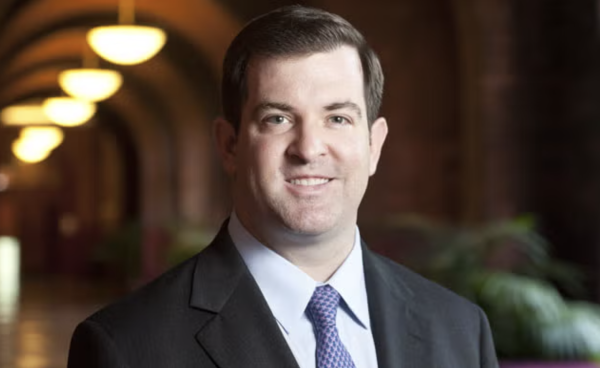After nearly 14 years managing Georgetown University’s investment portfolio, the university’s chief investment officer (CIO) stepped down to pursue a position managing Johns Hopkins University’s endowment, a university spokesperson confirmed to The Hoya Feb. 5.
As CIO, Michael Barry oversaw the growth of Georgetown’s endowment from about $1 billion to roughly $3.7 billion, a nearly 270% increase. During Barry’s tenure, the investment office established an internship program, committed to divesting from public oil and gas securities and became the first university to begin voluntarily disclosing the diversity statistics of its external fund managers.
Before working at Georgetown, Barry led the University System of Maryland Foundation’s investment office, which he founded in 2003. In departing for Johns Hopkins, where he attended graduate school, Barry will manage a larger $13 billion endowment. The investment office’s managing director, Chris Gill, will serve as Georgetown’s interim CIO while the university searches for a permanent replacement.
Barry did not respond to multiple requests for comment.

Zadie Weaver (CAS ’28), a Georgetown University Student Association (GUSA) senator, said the growing endowment under Barry has impacted student life by providing additional funding for student activities.
“From a GUSA perspective, student life and activities are some of Georgetown’s strongest attributes,” Weaver wrote to The Hoya. “Our alumni network and pre-professional nature is nurtured by our clubs, and clubs need money to function. A growth in the endowment means giving more to student life.”
One of the university’s most notable investment decisions under Barry was its February 2020 commitment to divest from public fossil fuel securities by February 2025 and private securities by February 2030. The board pledged to seek investments in renewable energy and companies promoting a “more sustainable future,” citing the university’s Jesuit values and Catholic social teaching.
Melissa Bradley (GSB ’89), a professor in the McDonough School of Business (MSB), said Barry’s decision to divest from fossil fuels aligned with Georgetown’s mission and values.
“The move to divest is clearly aligned with our values,” Bradley wrote to The Hoya. “Data shows the short and long term dangers attributed to our reliance on fossil fuels. Therefore, it makes sense for the University to maintain this position.”
Lindsay Machado (CAS ’26), the director of personnel for Georgetown Eco Consultants, a student-run organization that helps businesses in the Washington, D.C. area implement sustainability measures, said she appreciated the action taken to divest university funds from fossil fuels.
“I think students often feel that a commitment to sustainability can be in name only, and when the institution actually directs their finances towards that practice, that shows us a deeper level of commitment to both the students and the world around us,” Machado told The Hoya. “It shows that we do mean what we say as an institution.”
Bill Novelli, a professor emeritus in the MSB and the founder of the MSB’s Business for Impact center, which seeks to resolve policy issues through supporting businesses, said symbolic divestments like the decision to end investments in fossil fuels can spark change at a larger scale.
“By itself this won’t change the situation, but it is one way to keep pressure on the industry,” Novelli wrote to The Hoya. “I’ve learned from personal experience (with the tobacco industry, pharmaceuticals) that sustained pressure can bring industries to the table so we can find common ground.”
Though Georgetown’s endowment multiplied under Barry’s management, it remains outpaced by a number of Georgetown’s peers. The endowment is the 44th largest in the United States, lower than peer universities such as the University of Notre Dame, which had a $16.6 billion endowment as of 2023.
Marina Quinterno (CAS ’28) said the size of the endowment is surprising compared to the university’s reputation.
“I think it’s low, considering our position in the rankings and seeing the other schools and other institutions with equal reputation and status,” Quinterno told The Hoya.
Weaver said the size of Georgetown’s endowment is insufficient, especially in comparison to other Catholic institutions.
“Georgetown is a top university, but our endowment is extremely small as compared to our rival schools,” Weaver wrote. “I think Georgetown is ranked higher than Notre Dame, our next highest performing Catholic institution, yet their endowment is around $20 billion.”
The university will work to launch a search committee to find Barry’s permanent replacement, a university spokesperson told The Hoya.
Quinterno said she hopes the next CIO provides students more transparency about the university’s investments.
“I think the lack of transparency as to where it goes affects all of us, because if we don’t know where our money’s going into, how can we trust the institution that we’re going to?” Quinterno said.